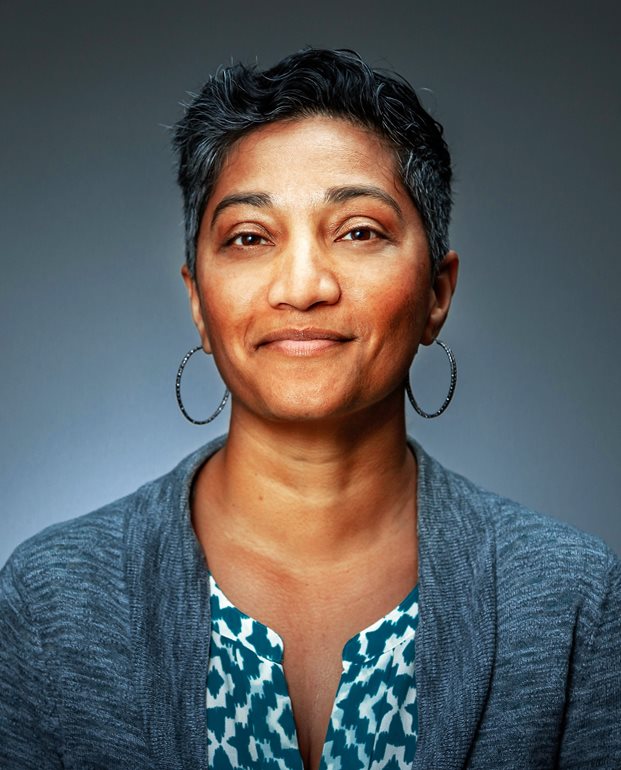
When the World Health Organization designated 2020 the Year of the Nurse and Midwife to celebrate their work, highlight their challenges and advocate for the workforce, no one could have foreseen how real that would become during the coronavirus pandemic.
Nurses have been more important than ever. And many midwives have seen a surge in demand, too.
“A lot of people shifted from hospital-based care to community-based maternity care, because they didn’t want a birth in a hospital where people were being seen, diagnosed, treated and/or dying from Covid,” said Sunita Iyer, a licensed midwife and naturopathic doctor who teaches in the School of Nursing & Health Studies.
Model of care

Doctors of naturopathy, Iyer explained, are primary care providers who look for the root causes of health concerns and use conventional prescriptions or botanicals, nutrition and lifestyle modifications. Licensed midwives primarily attend home births and births at free-standing birth centers. Certified nurse midwives primarily attend births in hospitals.
“Low-risk people — meaning they don’t have a lot of chronic health concerns, aren’t planning on delivering twins or triplets, or don’t have other complications — found after reading research, ‘Oh, I can actually have an out-of-hospital birth with pretty much the same likelihood of different outcomes,’” Iyer said.
Nationally, about 1% of births occur out of hospitals, but the number in Washington is more than 3%, Iyer said. The state requires that insurance cover midwives as well as home or birth center births, and there’s substantial savings for consumers.
Philosophy of care
Midwifery appeals to people from all geographic areas and philosophies, Iyer said — religious, progressive and libertarian. Patients receive treatment like they would from an obstetrician or hospital: prenatal visits, blood tests, ultrasound, vaccinations and screening for genetics and diseases such as gestational diabetes.
The big difference with midwifery is the focus on shared decision-making, Iyer said, adding that it takes time and education to become a trusted partner in charting the course of care.
Most people want the opportunity to understand why they’re making a choice versus being told what to do, she said. “That’s a huge piece of it — the concept of agency.”
Iyer received her doctorate and midwifery training from Bastyr University in 2008 and still teaches part time at the university in Kenmore near Saint Edward State Park. At UW Bothell since 2016, Iyer is a full-time assistant teaching professor who brings her background and expertise to discussions in her courses, such as the Social Dimensions of Health.
“It’s a really important dimension of health to have education, shared decision-making and agency,” Iyer said. “We see that in terms of health inequities. Midwifery care is one of the ways that we’re seeing those inequities shift in our state and nationwide.”
Clinical care
In 2008, Iyer founded Eastside Natural Medicine because a lot of families in her midwifery practice wanted to continue seeing her for regular care. She brought in other providers and built a network that created a one-stop shop for families.
“The way we practice pediatric care and family medicine is very much like the midwifery model of care where there’s time, education and shared decision-making,” Iyer said. “We function like a family that takes care of other families.”
With 14 different providers — doctors, midwives, counselors and acupuncturists — the clinic served 1,000 to 1,500 patients a month prior to the pandemic.
Eastside Natural Medicine does not serve as a birthing center, but it works with birthing centers in the area, said Iyer, who specializes in post-partum depression.
“There is a new normal, and the old normal is gone — very similar to what is happening in the pandemic for a lot of people,” Iyer said. “Every single patient is reaching out about their mental and emotional health.”
Caring support
Iyer is currently also serving as the co-president of the Midwives Association of Washington State. The organization would like regulators to expand the services midwives can offer, especially in rural areas with limited health care services.
”We do routine gynecologic care as part of maternity care,” Iyer said. “Why not expand that beyond the perinatal period?“
Iyer said she believes UW Bothell supports the mission and work of both nurses and midwives through its core values.
“That integration of equity and social justice into everything we do is a unique feature of this campus — and specifically the School of Nursing & Health Studies,” Iyer said. “I feel lucky and proud to be there, especially in the year of the nurse and midwife.”



